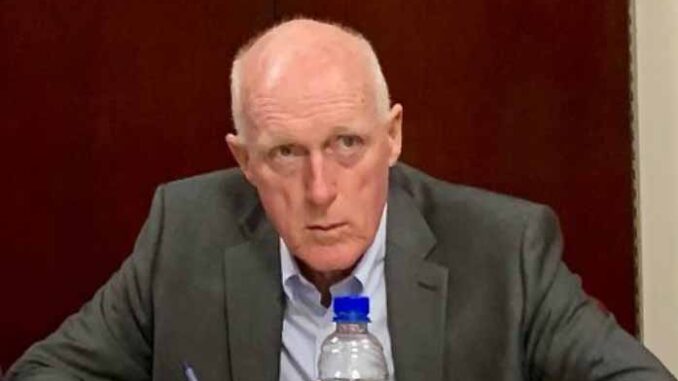
Several state legislators who voted in favor of changing the law for how various 2022 primary candidates can get into office had a chance to ask questions Tuesday about how the law came to have a serious unintended consequence.
The House Government & Elections Committee met to discuss new legislation that would at minimum retroactively repeal House Bill 2839 which was signed into law by Gov. Doug Ducey on March 3 after unanimously clearing the Legislature.
HB2839 contained four sections related to various election procedures. Only one, Section 4, has generated an outcry, as it completely alters the way political party precinct committeemen (PCs) are selected.
In the past, PC candidates get their names on the primary ballot by submitting nomination petition signatures. Then the other voters in the same political party in that precinct elect their PCs.
However, HB2839 granted full authority to each county’s political party committees to select their PCs from the interested candidate pool. Over the last few days most of the 85 lawmakers who cast “aye” votes for the legislation now say they did not realize what they were voting for.
Under questioning by committee chair John Kavanagh (R-LD23), Jen Marson explained the role played by the Arizona Association of Counties (AAOC) in the drafting of the PC legislation language. AAOC serves as the lobby for various issues which affect county operations.
According to Marson, her organization was notified on Feb. 21 by Jeff Kros, the Senate’s special legal counsel, that “a home” had been found to add legislation related to this year’s election of Justices of the Peace and Constables. It was then, Marson says, that AAOC was asked to help with issues related to the upcoming election of PCs.
AAOC then met with legislative staff as well as Tiffany Anderson, the Election Services Director for Yuma County who also serves as legislative coordinator for the Election Officials of Arizona (EOA). At that meeting, the attendees “mapped out the situation and what needed to happen” to address the PC issues, Marson said.
In Arizona, election directors are not elected officials. In some counties the position reports to the elected county records, but in other counties the election director is under the authority of the board of supervisors.
On Feb. 25, the EOA’s legislative committee -Anderson from Yuma County, Lisa Marra from Cochise County, Lynn Constabile and Angie Cloutier from Yavapai County, and Scott Jarrett and Kristi Passarelli from Maricopa County- discussed the matter in more detail.

Another discussion on Feb. 28 led Anderson to distribute final language for the Justice of the Peace and Constable legislation to all of the state’s county election directors. Included in that email was what Marson described as a “bullet-point version” of changes being considered to PC election law for 2022; stakeholders at the county level were given until Noon the next day to comment.
“Once we let the Legislature know ‘okay, none of our members have balked at these bullet points that we sent out’ that was the end of (AAOC’s) involvement,” Marson added. As a result, the PC provision was drafted into formal language by legislative staffers.
Senate President Karen Fann has said the final language of HB2839 was not available for review until the evening of March 2. The legislation was introduced the next morning by House Speaker Rusty Bowers, with a sister-version introduced by Fann.
Legislative rules were suspended in both chambers to allow for the introduction, voting, and transmission of the passed bill to Gov. Doug Ducey all on the same day. The final votes were 58 to 0 in the House and 28 to 0 in the Senate.
When Rep. John Fillmore (R-LD16) pushed Marson during Tuesday’s committee hearing for more information as to which staffers were involved, Marson declined to provide names. Rep. Alma Hernandez then cautioned her fellow committee members about “pointing fingers” at people who had nothing to do with the voting by lawmakers.
“A vote has already been taken,” Hernandez (D-LD3) noted. “There was a sponsor of the bill, it came to the floor rushed, and we voted on it,” with full support “on both sides.”
HB2840, the new bill that would repeal Section 4, has run into some pushback as lawmakers want to ensure they fully understand the consequence of a repeal, as well as the impact of any new language related the PC election.
The House Government & Elections Committee cleared HB2840 on a 7 to 6 vote. It also needs a pass action from the House Rules Committee before a full chamber vote can occur. The Senate is slated to take up the PC repeal legislation in committee on Thursday.
READ MORE ABOUT HB2839 / HB2840 HERE
